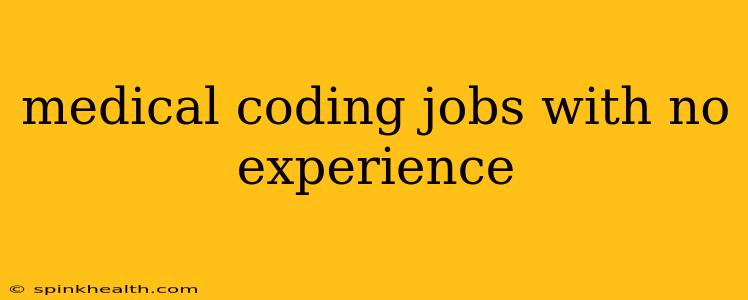Cracking the Code: Landing Your First Medical Coding Job
The world of medical coding might seem intimidating, filled with complex codes and intricate regulations. But the truth is, many find fulfilling careers in this field, even without prior experience. My journey into medical coding started with a similar feeling of being overwhelmed, but with determination and the right approach, I secured my first role. This is the story of how I did it, and how you can too.
The Allure of Medical Coding: I was drawn to medical coding for its blend of analytical skills and healthcare impact. The chance to contribute to accurate patient records and smooth billing processes appealed to me. But the biggest hurdle seemed to be the lack of experience. Most job postings seemed to demand years of experience, leaving me feeling discouraged.
Breaking the Experience Barrier: The key, I discovered, wasn't about having years of experience, but about demonstrating the potential for success. This meant focusing on several key areas:
What education or certifications are needed to become a medical coder?
This is a crucial question, and the answer is multifaceted. While a formal education isn't strictly required for all entry-level positions, it's highly recommended. Many employers prefer candidates with an Associate's degree in Health Information Technology or a related field. Furthermore, certifications such as the Certified Professional Coder (CPC) exam from the American Academy of Professional Coders (AAPC) or the Certified Coding Associate (CCA) exam from the AHIMA (American Health Information Management Association) can significantly boost your chances. These certifications demonstrate competence and commitment, making you a more attractive candidate. Consider them an investment in your future.
What is the typical salary for a medical coder with no experience?
The salary for an entry-level medical coder varies depending on location, employer type, and the specific certifications held. However, you can expect a starting salary somewhere in the range of $35,000 to $45,000 annually. This can increase significantly with experience and further certifications.
What are the best entry-level medical coding jobs for someone with no experience?
While the "dream" job might seem far off, several entry-level opportunities exist. Consider these:
- Medical Coding Intern: Many healthcare facilities and coding companies offer internships that provide hands-on experience and mentorship. These are invaluable for building your resume and gaining practical skills.
- Medical Billing and Coding Assistant: This role often involves assisting experienced coders, allowing you to learn the ropes while contributing to the team.
- Medical Records Clerk: While not directly coding, this role allows you to become familiar with medical terminology, chart organization, and the healthcare environment. It’s a stepping stone that builds relevant experience.
- Remote Coding Jobs: The rise of remote work has opened doors for entry-level coders. Several companies now offer remote positions, broadening your job search possibilities.
How can I get experience in medical coding without a job?
Practical experience is essential, and there are ways to gain it even before securing a formal position.
- Volunteer: Offer your services to a local clinic or non-profit organization. This provides invaluable experience and demonstrates your dedication.
- Freelance Opportunities: Some freelance platforms offer small coding projects, allowing you to build your portfolio and refine your skills.
- Practice with Software: Familiarize yourself with industry-standard medical coding software. Many offer free trials or tutorials.
- Online Courses and Workshops: Numerous online resources offer medical coding courses that can teach you the basics and prepare you for certification exams.
My Success Story (and yours can be too!): I started with an online course, then volunteered at a small clinic, eventually landing an internship. This pathway allowed me to build my skills and confidence, and I'm now happily employed in a challenging and rewarding medical coding role.
Remember, perseverance is key. Don't let the initial hurdle of "no experience" discourage you. By focusing on education, certifications, and building practical skills, you can unlock the door to a fulfilling career in medical coding. The codes might be complex, but your path to success doesn't have to be.

